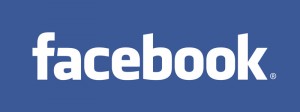As you may have heard, Facebook plans to become a public limited company (plc) and float on the stockmarket. It hopes that this will raise around the sum of $5 billion USD (this is only about half what most people thought it would try to raise) in finance for the business, a colossal amount!
 Thanks to the flotation it is estimated that around 30% (roughly 1,000 people) of the companies employees will become millionaires! That said, Mark Zuckerberg is reducing his annual salary to just $1 as of January next year. Why? Because he will have shares estimated at the value of around $100 billion!
Thanks to the flotation it is estimated that around 30% (roughly 1,000 people) of the companies employees will become millionaires! That said, Mark Zuckerberg is reducing his annual salary to just $1 as of January next year. Why? Because he will have shares estimated at the value of around $100 billion!
Anyway, due to Facebook wanting to become a plc, it needed to release more detailed financial data than it ever had before, into the public domain. This means that we now know much more about this previously rather secretive internet giant, than ever before!
Finances
Thanks to its choice to become a plc, we now know that Facebook makes 85% of its income from advertising. Furthermore we know that last year it made almost $4 billion USD! Out of this, it turned an impressive 25% into profit, bringing it in $1 billion (supposedly exactly) in net profit.
It is now possible to value to company as a whole, and it is thought to be worth $100 billion USD. To compare that to other industry giants, Amazon is valued around the same amount, eBay is values at about half that figure, and Google is thought to be worth double that.
Ownership
Facebook will still be owned and controlled largely by Mark Zuckerberg. He currently owns 28.4% of Facebook and has a majority in terms of voting rights with over 50% of votes. Basically Zuckerberg owns Facebook still, and he seems to want to stay in the driving seat for a while yet!
 Users
Users
We now also know that Facebook have around 845 million active users around the world, of whom, around 450 million visit the site very regularly – that is a crazy amount!
The Future?
Facebook would be worth nothing without its users. Some people say that its users are not Facebook’s customers, but in fact the networks products. If people get bored or move on, the site will die.
If you were buying shares in an internet based business, Google would probably be a much safer bet than Facebook, as its future looks much more certain. Facebook may pay massive dividends to investors in the future, or it may go into decline and cost investors a collective $5 billion!
Friends Reunited was once great, now it stands in Facebook’s massive shadow, as does Myspace, Bebo, Foursquare and many other social media sites. All these sites how now been superseded by Facebook, the question is, will Google Plus or something else dwarf Facebook? Personally I believe that in 10 years, there will be something bigger, but we will just have to wait and see 🙂
